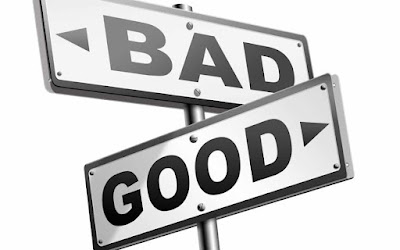What's profit? It seems like today we confuse “profit” with “greed”.
They are not the same. Profit is good. Greed is bad. Profit can lead to greed
but that’s a character issue. Greed
leads to excess to the detriment of others and self. Profit does not
necessarily do that. On the other hand, why is profit important to everyone,
not just business owners and entrepreneurs?
Here's a simple quiz: When you spend $100 on a new pair of
shoes does the shop owner get to keep that $100?
The answer, of course, is...no. The shop owner has to pay
all their business costs employee salaries, inventory, rent, supplies, taxes,
and a dozen other expenses. Their profit is what's left over. It's their
payment for the time and money they’ve spent and the risk that they’ve taken to
keep their business going. Thank goodness for profits. Profits motivate people
to work hard for themselves and make life better for others.
For example, take Bill Gates. How did he become so wealthy?
The answer is that he came up with something that millions of people wanted and
needed that they reached into their pockets to pay for it -- his Windows
operating system, Word software and other Microsoft products. What's more, he
produced these products in a way that efficiently used resources. What
motivated him, and just about every other successful entrepreneur, to work so
hard? The answer is …profits.
Without the incentive of profits, why would anyone spend their
savings, work countless hours, and take all the risks necessary to bring their
product or service to the marketplace? There's a simple answer they wouldn't.
You don't have to make billions like Bill Gates. Take a
Montana cattle rancher who goes out in the dead of winter, even in blizzards, to
feed his cows, to keep them safe, and care for them, making huge personal
sacrifices so that New Yorkers can sit down to eat a nice steak. Why does that
rancher do that? Do you think he does it because he loves New Yorkers? Of
course not! The rancher tends to his cattle because he wants more for himself
and his family. He wants profits.
You can go to a supermarket any day of the week and if you
want steak, they have it.
If you want potatoes, they have them. Sugar, salt, potato
chips, strawberries, peanut butter -- they have it. In fact, the average
well-stocked supermarket in the United States has over fifty-thousand different
items on its shelves. How does all that get there? It seems like magic, but
it's not. Every one of those items is on the shelves thanks to one thing --
profit.
The same holds true for the device you're reading this
article on -- whether it's a desktop or laptop computer, a smart phone, or a
tablet. And for every component in those devices! They all exist -- as millions
of other products we treasure and depend upon exist -- because of the profit
motive. No profit and it all goes away.
Here's another reason the profit motive is so important. Ask
yourself this question, Which establishments do you tend to be most
dissatisfied with? The answer is likely to be government agencies. Why? Because
they don't operate for profit. Because no one is rewarded for good work and
almost no one is ever punished for inferior work. And which establishments are
you most satisfied with? The answer is likely to be the ones that operate on a for-profit basis. If I'm unhappy with a
department store like Macy's or Bloomingdale's because it's not providing me
with the goods or services that I want, I can, in essence, fire that store by
taking my business elsewhere.
But consider a government agency like the Department of
Motor Vehicles or public schools. If I am frustrated with their performance, I
can't fire them because I don't have many alternatives. Business owners must
please their customers or risk failure and bankruptcy. Government agencies risk
nothing and therefore have to please no one.
Am I saying that we don't need government, that everything
should be on a for-profit basis? Of course not. But what I am saying is that we
should want as little government as possible. That's exactly what the Founding
Fathers of our nation believed. They understood that the profit motive pushes
people to do extraordinary things. Take that motivation away and the world
becomes a very different and darker place.
- Walter Williams



Comments
Post a Comment